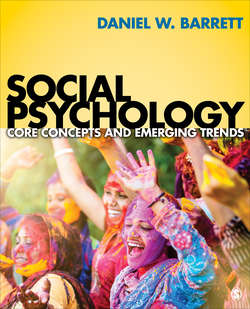Читать книгу Social Psychology - Daniel W. Barrett - Страница 133
На сайте Литреса книга снята с продажи.
Motivated Reasoning
ОглавлениеThe errors that we have discussed so far are rooted in “cold” mental processes that reflect simple overreliance on shortcuts and misperceptions of reality. That is, the perceiver has no particular stake in the answer and is not interpreting available information in order to achieve a certain goal or outcome. In contrast, other cognitive errors can result from “hot” cognition: the perceiver’s reasoning is motivated or intended to reach a desired conclusion, solution, or outcome. Motivated reasoning—hot cognition—occurs when a person’s mental processing is influenced by that person’s desires, feelings, or goals (Hahn & Harris, 2014; Kunda, 1990). Here again we see the principle of construal at work: how individual interpretation of the social environment affects our social behavior. The basic idea here is that we first decide what the answer is and then gather data or evaluate the available information to justify or support that answer. The case for motivated reasoning was most cogently laid out in a famous paper by Ziva Kunda (1990) and has been well-substantiated across many domains of social behavior, including how people evaluate new technologies (Druckman & Bolsen, 2011), count ballots in disputed elections (Kopko, Bryner, Budziak, Devine, & Nawara, 2011), understand important political issues (Slothuus & de Vreese, 2010), interpret consumer brand information (Jain & Maheswaran, 2000), and apply stereotypes (Kunda & Sinclair, 1999). This section introduces a couple of biases that, as you will see, may prevent relatively unbiased thinking and instead lead the perceiver to a preferred conclusion.
